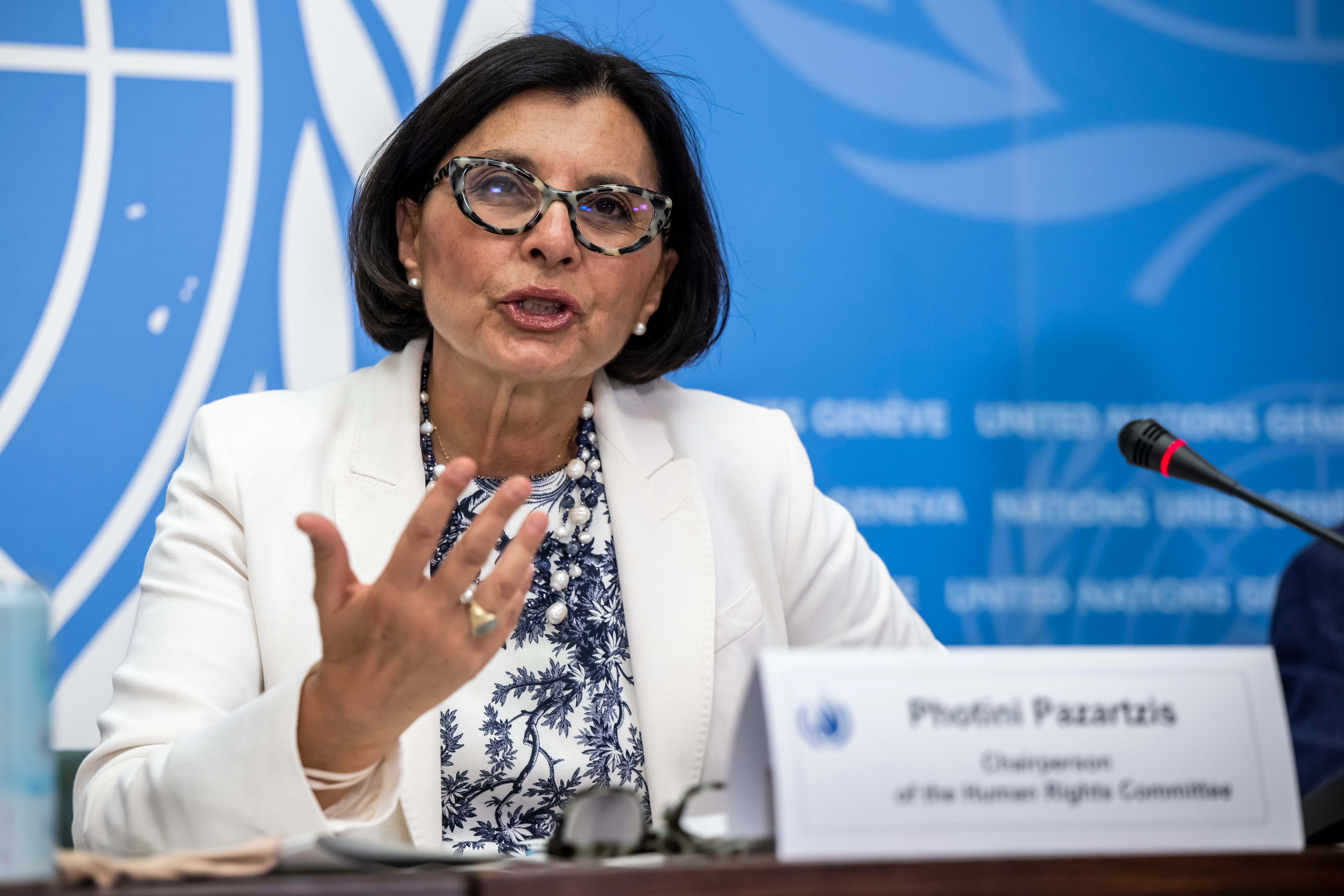UN experts urge Hong Kong authorities to repeal security law
Independent human rights experts backed by the United Nations are calling on authorities in Hong Kong to repeal a national security law that squelched protests and criticism over China’s tightening grip on the freewheeling semi-autonomous region

Independent human rights experts backed by the United Nations called Wednesday on authorities in Hong Kong to repeal a national security law that squelched protests and criticism over China's tightening grip on the semi-autonomous region.
The U.N.-backed Human Rights Committee added its voice to independent advocacy groups that have said the National Security Law was passed by the National People's Congress in Beijing without adequately consulting the people of Hong Kong.
Since its passage in 2020, the law has reportedly been applied in connection with the arrests of more than 200 people, the experts say.
The committee aims to ensure that signatories of the International Covenant on Civil and Political Rights uphold their commitments to respecting people's rights and freedoms.
The findings by the committee, part of a regular review of parties to the covenant, expose again the complexities of Beijing's control of Hong Kong for the last 25 years. The findings were published Wednesday after a string of hearings — including Hong Kong authorities — earlier this month.
The Chinese region of Macao, Georgia, Ireland, Luxembourg and Uruguay were also examined.
Hong Kong acceded to the covenant after Britain, the region's former colonial ruler, ratified it in 1976. After the handover of Hong Kong to China in 1997, Chinese authorities told the U.N. chief that the covenant would continue to apply to the region.
“Hong Kong, China should ensure that the covenant prevails over local legislation and laws applicable in Hong Kong, including the National Security Law, and bring these laws and practices in full conformity with the Covenant,” the experts wrote.
Addressing Hong Kong — and not China, which has not ratified the covenant — committee vice chair Christopher Arif Bulkan told reporters: “The committee urged Hong Kong to take action to repeal the national security law and in the interim refrain from applying it.”
Bulkan cited the “unique” context in which a country — like China — was in essence inheriting a commitment to the covenant that was made before it took control of Hong Kong and Macao.
He said Hong Kong's authorities, during the hearings, had “indicated that they are considering enacting a new law” — and he emphasized Beijing's past commitment to a “one country, two systems” policy with regard to the two regions.
In a statement, the Hong Kong government made no reference to any possible new law. It also said China had the right to legislate on issues of national security, which falls under central authorities, under the “one country, two systems” principle. It said the relevant parts of the human rights covenant were taken into consideration when the national security law was drawn up.
Last year, Amnesty International said the security law had decimated Hong Kong’s freedoms and created a landscape increasingly devoid of human rights protections.
___
This story corrects the day of the week to Wednesday.